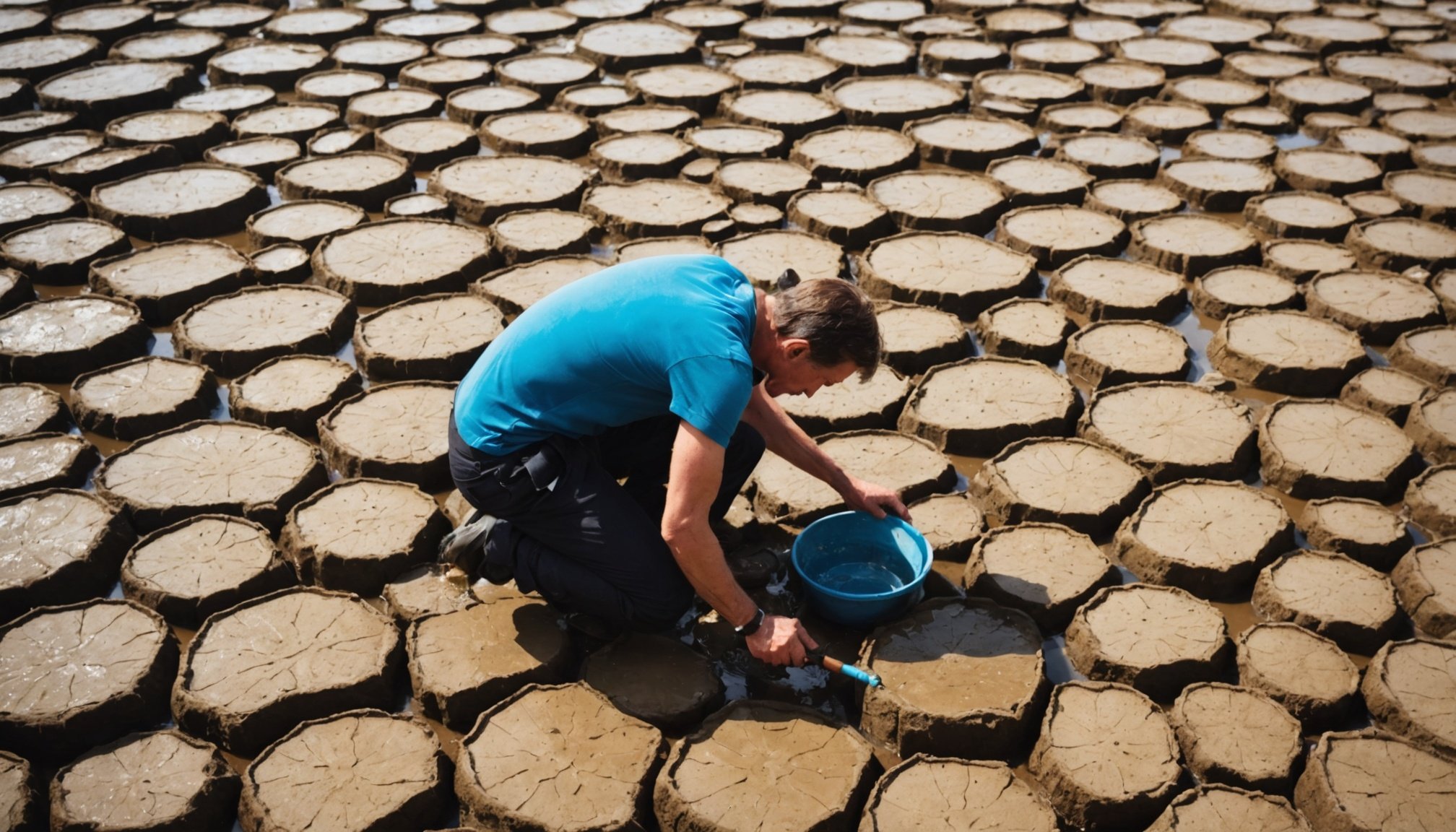Importance of Water Conservation in the UK
The UK faces increasing challenges with water scarcity, making it crucial for residents to take part in conservation efforts. Recent statistics reveal an alarming surge in water usage, with households consuming vast amounts daily. This unsustainable consumption contributes significantly to existing water shortages, which are now affecting many regions across the UK, particularly during warmer months.
The environmental impacts of water scarcity cannot be overlooked. Depleted water resources strain ecosystems, affecting wildlife and reducing biodiversity. Moreover, water scarcity exacerbates pollution levels in rivers and lakes, affecting the quality of natural habitats. Such environmental challenges not only threaten the balance of nature but also compromise the quality of life for UK residents.
Have you seen this : Upgrade your wandsworth property through skilled loft conversions
Individual efforts play a vital role in addressing these issues. Simple actions, such as fixing leaks, using water-efficient fixtures, and being mindful of daily water use, offer practical solutions to the broader problem of scarcity. When multiplied across millions of households, these efforts can lead to substantial worldwide improvements in water conservation.
Encouraging every resident to be aware of their water footprint is essential. The impact of small, everyday decisions in conserving water contributes to significant collective change, creating a sustainable future for the UK.
Additional reading : Boosting Job Prospects: The Impact of the UK”s Digital Literacy Initiative on Employment Opportunities
Practical Tips for Reducing Water Usage
Discover effective strategies to cut down your household water consumption and promote eco-friendly practices. Implementing these techniques can significantly contribute to water preservation, ensuring that this invaluable resource is available for future generations.
Indoor Water Conservation Techniques
Start by installing low-flow fixtures and appliances. These devices optimise water use without sacrificing performance. Efficient laundry practices are another crucial factor—always run full loads and use cold water where possible. This reduces water usage and saves energy. Consider rethinking personal hygiene routines as well. Shortening showers and turning off the tap while brushing your teeth are simple yet effective practices.
Outdoor Water Conservation Strategies
In your garden, opt for drought-resistant landscaping choices. Native plants often require less water. Employ rainwater harvesting systems to collect and repurpose rainwater for watering plants or other outdoor needs. Smart irrigation systems can also play a pivotal role, using sensors to ensure plants receive only the water they need.
Behavioral Changes for Water Efficiency
Incorporate daily habits to minimize water waste. For instance, fix leaks immediately and only run the dishwasher when it’s full. Educate family and friends on efficient water use and track your own consumption to identify areas for further improvement. Embracing these changes can lead to a more sustainable lifestyle.
Government Initiatives and Policies
The UK government is actively addressing water sustainability through a variety of policies and initiatives aimed at mitigating water shortages. These efforts are crucial in ensuring sustainable water use and availability across the nation. Key government policies include regulating water usage by enforcing strict water sustainability guidelines. These regulations aim to curb excessive water consumption in both domestic and industrial sectors.
Moreover, several current initiatives are in place to promote water conservation nationwide. Among these is the promotion of water-efficient appliances and technologies, encouraging households and businesses to adopt practices that reduce water waste. Public awareness campaigns also play a significant role in educating citizens about the importance of preserving water resources.
Recent case studies highlight successful government programs focused on water sustainability. For instance, some local councils have implemented innovative solutions such as rainwater harvesting systems and greywater recycling. These measures have shown promising results in reducing water demand and supporting sustainable practices.
In conclusion, government policies and initiatives in the UK serve as pivotal steps toward securing a sustainable water future, demonstrating ongoing commitment and ingenuity in addressing water shortages.
Community Actions and Engagement
Taking an active role in community involvement can lead to significant local initiatives for improving water conservation practices. Participating in such efforts can have a positive impact not only on the environment but also on the cohesion of your neighborhood.
Local Water Conservation Groups
Finding and joining local initiatives can be as simple as searching online for community groups dedicated to water conservation. These groups often welcome new members who are passionate about making a difference. The benefits of group efforts include shared resources, education on best practices, and increased influence in advocating for changes. Many communities have seen remarkable success, like reduced water wastage through collective action.
Participating in Local Policy Discussions
It’s crucial to voice concerns at community meetings where water management policies are discussed. Advocacy plays a significant role in shaping these policies, and joining group efforts can amplify your impact. Being active in petitions or campaigns for better water policies ensures that your community’s needs are heard and considered.
Educational Workshops and Events
Community events and workshops focused on water conservation offer valuable opportunities to learn about sustainable practices. These gatherings are beneficial for families, providing a way to engage with the topic in a practical setting. Participating in these events fosters a culture of awareness and helps integrate efficient water use into daily life.
Innovative Water Conservation Techniques
Innovative technology has dramatically transformed water conservation efforts, with advances leading to substantial impacts on efficiency. Smart irrigation systems, for instance, employ sensors and weather forecasts to determine optimal watering times, preventing waste. These systems not only conserve water but also maintain healthy landscapes.
Integrating smart home systems has furthered this cause by enhancing water management at a domestic level. Smart water leak detectors alert homeowners instantly, preserving both resources and the integrity of homes. Moreover, systems that monitor water usage help in understanding consumption patterns, encouraging mindful usage.
Exploring conservation methods from other countries offers insightful innovations that can be adapted in the UK. In Australia, a leader in this field due to its arid environment, technologies like rainwater harvesting and greywater systems have been integrated into everyday life. By capturing rainwater, homes supplement their supply, reducing reliance on mains water. Greywater recycling, on the other hand, repurposes water from baths and sinks for garden or flushing purposes.
These cutting-edge water management strategies not only highlight technological prowess but also underpin a proactive approach towards sustainable living. Adopting these tested techniques could effectively address the ongoing challenges of water scarcity.
Resources and Support for Residents
Residents aspiring to improve their water conservation efforts have a variety of support resources available. Local water boards and conservation departments often provide grants and subsidies for installing water-saving technologies. These include rainwater harvesting systems and efficient irrigation setups. It’s worthwhile contacting your local water board to explore the specific opportunities available to you.
On another front, the internet hosts a myriad of online resources tailored for all residents keen on joining in on the water-saving mission. Toolkits, for instance, often come with comprehensive guides and practical tips on reducing water consumption at home. They are easily accessible and offer a treasure trove of information right at your fingertips.
For those eager to delve deeper into community resources, attending workshops or webinars hosted by local authorities can be incredibly insightful. These platforms not only educate but also encourage a communal approach to conservation. If you’re unsure where to begin, checking local government websites or community centres can lead you to valuable water conservation tools and communal initiatives. Collaboratively, these resources and supports empower everyone to partake in meaningful water conservation practices.











